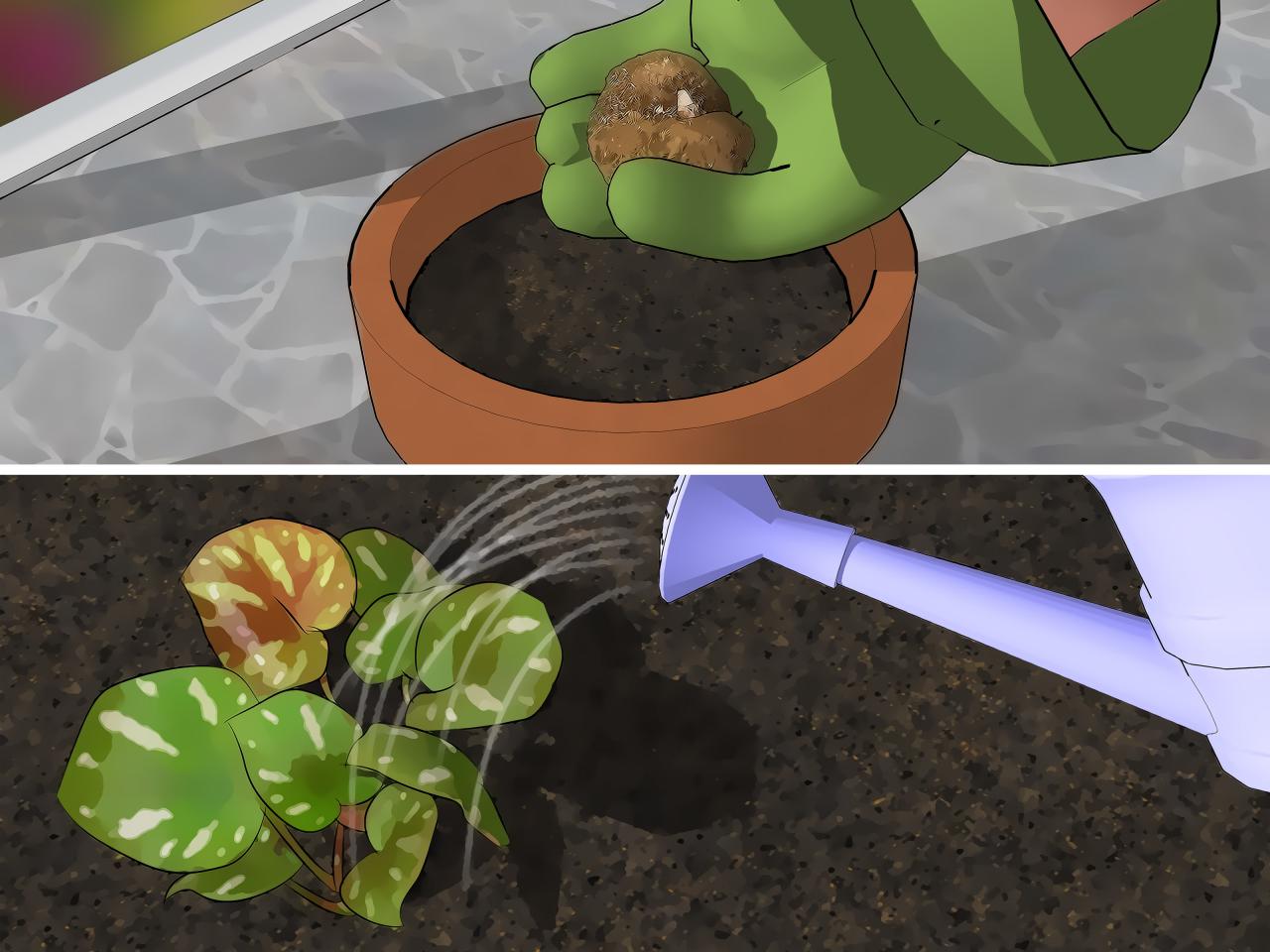How Far Apart To Plant Begonia – When it comes to growing beautiful begonias, one of the key considerations is how far apart to plant them. Begonias are beloved for their lush foliage and vibrant flowers, making them a popular choice for both indoor and outdoor gardens. However, proper spacing can significantly impact their health and appearance. In this comprehensive guide, we’ll delve into the factors that influence planting distance, the benefits of proper spacing, and tips for caring for your begonias to ensure they flourish. 🌺
Understanding Begonias
Begonias are a diverse genus of flowering plants with more than 1,800 species. They are typically characterized by their attractive leaves and colorful blooms. Different types of begonias, such as tuberous, fibrous-rooted, and Rex begonias, have varying requirements when it comes to planting distance. Understanding these differences is crucial for optimal growth.
Common Types of Begonias

Before we dive into planting distances, let’s take a look at some common types of begonias you might encounter:
- Tuberous Begonias: Known for their large, showy flowers.
- Fibrous-rooted Begonias: Characterized by their smaller leaves and flowers, they are ideal for garden beds.
- Rex Begonias: Valued for their stunning foliage rather than flowers.
How Far Apart to Plant Begonias?
When planning your begonia garden, a good rule of thumb for spacing is to plant them at least 12 to 18 inches apart. This distance can vary depending on the specific type of begonia and the growing conditions. Below is a detailed table outlining the ideal spacing based on begonia types:
| Type of Begonia | Recommended Spacing |
|---|---|
| Tuberous Begonias | 12-18 inches apart |
| Fibrous-rooted Begonias | 10-12 inches apart |
| Rex Begonias | 12-16 inches apart |
Factors Influencing Planting Distance

Several factors can affect how far apart you should plant your begonias:
- Type of Begonia: As mentioned, different types have unique growth habits, influencing how much space they need.
- Growth Conditions: If your begonias are grown in rich, well-draining soil, they may need less space compared to those planted in poor soil.
- Light Exposure: If they receive too much sunlight, they may not need as much space since their growth can be stunted; however, those in shade may spread out more.
Important Note: Planting too close can lead to overcrowding, which can cause pests and diseases to spread more easily. Always follow the recommended spacing for the specific type of begonia you’re planting.
The Benefits of Proper Spacing
When you give your begonias enough space, you’re not just following aesthetic guidelines—you’re ensuring their health and vitality. Here are some key benefits of proper spacing:
- Improved Air Circulation: Adequate spacing allows air to circulate freely, reducing the risk of fungal infections.
- Access to Nutrients: When begonias are spaced well, they can compete less for water and nutrients from the soil.
- Enhanced Growth: Proper spacing allows each plant to reach its full potential, resulting in fuller, more vibrant blooms.
Planting Techniques for Begonias, How Far Apart To Plant Begonia
Now that you understand the importance of spacing, let’s look at some effective planting techniques to help your begonias thrive:
- Soil Preparation: Ensure you use well-draining soil mixed with compost for nutrients.
- Watering: Water thoroughly after planting but avoid overwatering. Begonias prefer slightly moist soil.
- Fertilization: Use a balanced fertilizer to encourage healthy growth, especially during the growing season.
Care Tips for Healthy Begonias
Proper care is essential for the longevity of your begonias. Here are some care tips to keep in mind:
Sunlight Requirements
Begonias thrive in bright, indirect sunlight. Too much direct sunlight can scorch their leaves, while too little can hinder their growth. Aim for about 4-6 hours of filtered sunlight per day.
Watering Practices
Keep the soil consistently moist but not soggy. Check the soil moisture regularly and water when the top inch feels dry. Be cautious not to let the plant sit in water, as this can lead to root rot.
Pest Control
Common pests like aphids and spider mites can target begonias. Keep an eye out for any signs of infestation. Regularly inspect your plants, and consider using insecticidal soap or neem oil if you encounter pests.
Pruning and Maintenance
To encourage bushier growth, pinch back the tips of your begonias. Remove any yellowing or dead leaves to promote healthy growth and improve airflow around your plants.
Tip: Regular maintenance and proper care will yield beautiful blooms and healthier plants, making your garden a sight to behold! 🌼
Conclusion
By understanding how far apart to plant begonias and following proper care techniques, you can create a stunning display of these lovely plants in your garden. Whether you’re a seasoned gardener or a beginner, giving your begonias the right amount of space is crucial for their success. Happy planting!
